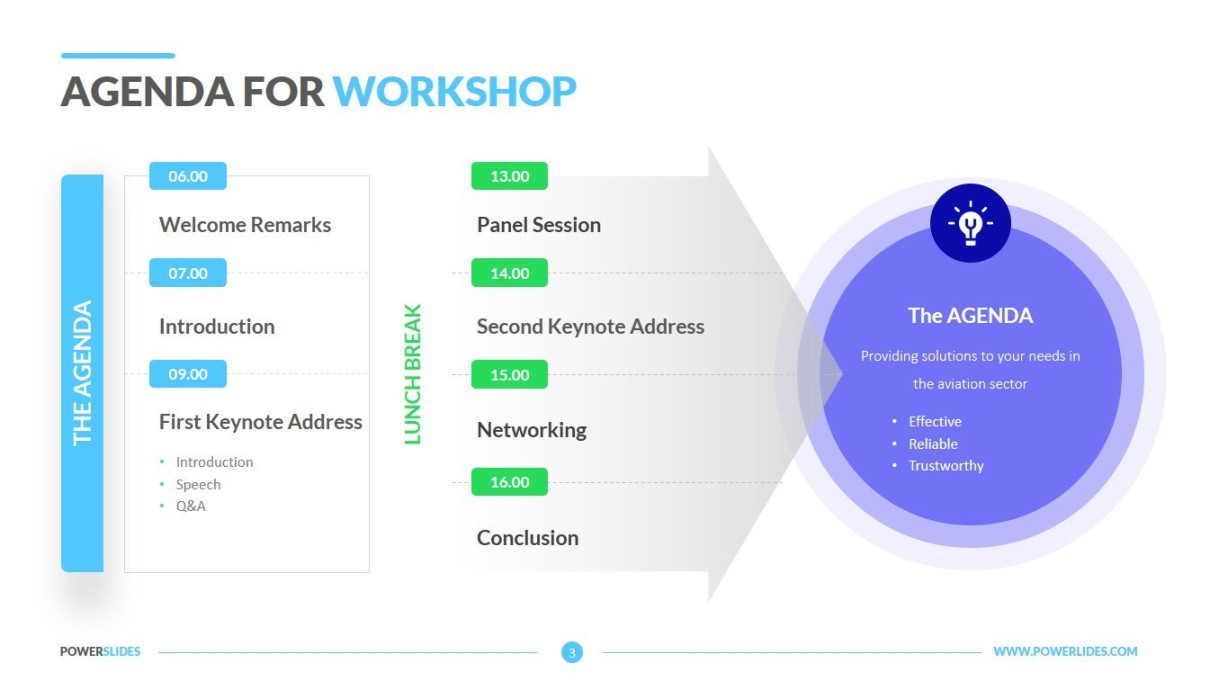A well-structured workshop Agenda template is essential for organizing and conducting successful workshops. It serves as a roadmap for participants, outlining the topics to be covered, the time allotted for each session, and the key speakers or facilitators. By creating a professional and informative agenda, you can set expectations, maintain focus, and ensure a productive learning experience.
Essential Elements of a Workshop Agenda Template

To create an effective workshop agenda template, incorporate the following essential elements:
1. Workshop Title and Date: Clearly state the workshop title and the date it will be held. This information should be prominently displayed at the top of the template.
2. Workshop Overview: Provide a brief overview of the workshop’s objectives, target audience, and key takeaways. This will give participants a clear understanding of what they can expect to learn.
3. Time and Location: Specify the exact time and location of the workshop, including any relevant room numbers or building information.
4. Registration Information: If registration is required, include contact details or a link for participants to sign up.
5. Agenda Items: Break down the workshop content into individual agenda items, such as presentations, discussions, group activities, or Q&A sessions.
6. Time Allotment: Assign a specific time duration to each agenda item. This will help maintain a structured flow and ensure that all topics are covered.
7. Speakers or Facilitators: List the names and titles of the speakers or facilitators who will be leading each session. This will help participants understand the expertise and experience of the presenters.
8. Breaks and Meals: Indicate the scheduled breaks and meal times throughout the workshop. This information is essential for participants to plan their day accordingly.
9. Contact Information: Provide contact information for the workshop organizers or coordinators in case participants have any questions or need assistance.
10. Logistics and Accommodations: If applicable, include information about any necessary logistics, such as parking, transportation, or accommodations.
Design Elements for Professionalism and Trust
To convey professionalism and trust through your workshop agenda template, consider the following design elements:
1. Clean and Consistent Layout: Use a clean and consistent layout that is easy to read and navigate. Choose fonts and colors that are professional and visually appealing.
2. Clear and Concise Language: Use clear and concise language throughout the template. Avoid jargon or technical terms that may confuse participants.
3. Professional Imagery: If appropriate, incorporate professional imagery that complements the workshop theme. However, avoid excessive use of images that may distract from the content.
4. White Space: Use white space effectively to create a visually appealing and balanced layout. Avoid overcrowding the template with too much text or information.
5. Branding Elements: If applicable, incorporate your organization’s branding elements, such as your logo, colors, and fonts. This will help create a cohesive and professional look.
6. Accessibility: Ensure that the template is accessible to all participants, including those with disabilities. Use a high-contrast color scheme and provide alternative text for any images.
7. Proofreading and Editing: Carefully proofread and edit the template to ensure that there are no errors or inconsistencies. A well-written and error-free agenda will enhance the overall professionalism of the workshop.
By following these guidelines and incorporating the essential elements of a workshop agenda template, you can create a professional and informative document that will help you organize and conduct successful workshops.